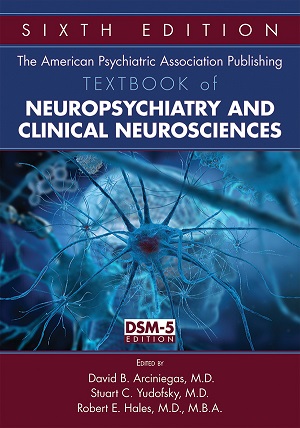Sections
Excerpt
In this chapter, the tools offered by history taking and examination for discovering the contribution of cerebral dysfunction to psychological abnormality and behavioral disturbance are reviewed. The focus is on methods of filling in a matrix of clinical information; clinical correlates of the symptoms and signs discussed are mentioned but not comprehensively reviewed. The focus also is on the manifestations of cerebral disease rather than on systemic disorders and the signs to which they may give rise in the general physical examination.
Access content
To read the fulltext, please use one of the options below to sign in or purchase access.- Personal login
- Institutional Login
- Sign in via OpenAthens
- Register for access
-
Please login/register if you wish to pair your device and check access availability.
Not a subscriber?
PsychiatryOnline subscription options offer access to the DSM-5 library, books, journals, CME, and patient resources. This all-in-one virtual library provides psychiatrists and mental health professionals with key resources for diagnosis, treatment, research, and professional development.
Need more help? PsychiatryOnline Customer Service may be reached by emailing [email protected] or by calling 800-368-5777 (in the U.S.) or 703-907-7322 (outside the U.S.).



